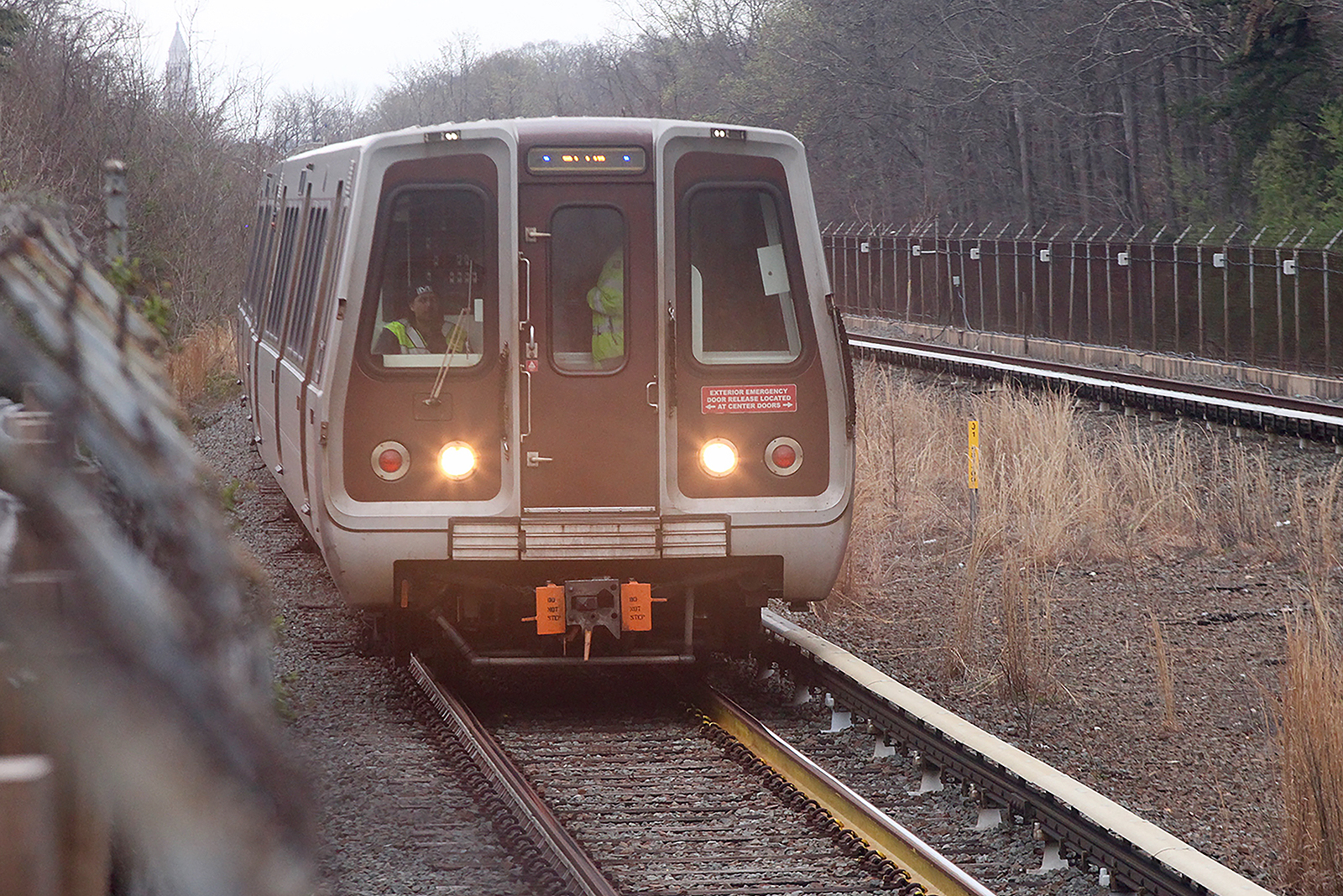
(Updated 9:55 p.m.) Bailing Metro out of its $750 million budget shortfall is going to sting the budgets of localities next year, and the Metropolitan Washington Council of Governments (COG) expects to release a plan addressing it next month.
COG Director Clark Mercer said that the organization’s Chief Administrative Officers (CAO) Committee work group on Metro’s cost structure will release a report next month outlining three options for Metro to consider. One of those options includes a one-time option to use Metro’s preventative maintenance fund against the balance for the next year or two, potentially cutting the shortfall by hundreds of millions of dollars.
“Most transit systems in the country do this on a regular basis,” Mercer told ALXnow. “But what Metro has heard kind of loud and clear is that the region cannot absorb a $750 million bill on top of what they already paid this year. What are some other options? It’s a big, huge mountain to climb.”
Mercer said that Metro CEO Randy Clarke has identified $50 million in ongoing savings from eliminating consultants, as well as nearly $100 million from this year’s budget that will roll over into next year’s budget.
“Just so you know, that fiscal cliff of $750 million, once moving those preventative maintenance dollars up, the next year that cliff is still there,” Mercer said. “It goes down to $300 or $400 million, then up to $750 million again. Those numbers are real.”

COG acts as a regional powerhouse, corralling 24 member jurisdictions (with about six million residents) to get on the same page on regional initiatives like transportation planning, affordable housing, law enforcement and environmental sustainability. Last month, COG released a statement in response to the Washington Metropolitan Area Transit Authority’s financial update.
“Our region’s economy and quality of life depend on a reliable, sustainable Metro system,” stated COG Board of Directors Chair Kate Stewart, who is a Montgomery County Councilmember. “State, local, and federal leaders need to prioritize ensuring we avert the fiscal cliff facing the system and work together to find a long-term, sustainable funding solution.”
The CAO work group, which compiled the report and recommendations, is chaired by Alexandria City Manager Jim Parajon.
COG is made up of about 130 employees, and nearly half of them work in transit with the Transportation Planning Board for the region. Additionally, Metro’s budget has to be approved in the organization’s long-term plan to get federal funding.
Mercer said that not funding Metro by next summer would result in a “transit death spiral.”
“You’re not gonna be able to recruit a company to this region without a well-run Metro system,” he said. “One reason Amazon came where they came was because of Metro, and there are a lot of companies like that.”
Mercer continued, “We can say, ‘We don’t want to fund it, and we want a poorly run Metro,’ and that’s a disaster for the region,” Mercer said. “Option one is a transit death spiral.”
In 2018, jurisdictions in the region agreed to cap their funding to Metro to $500 million, and to increase their allocation no more than 3% every year. Now with Metro’s $750 million shortfall, that 3% needs to be re-baselined with Virginia and Maryland state legislators, Mercer said.
“The second option is to look at the way that Metro is funded — from Richmond, Annapolis, the District of Columbia, and the federal government,” Mercer said. “Ask any business person if they want their budget approved every year by four different boards of directors. Funding options needs to be discussed over the next year.”
Without a funding increase from Alexandria and its neighbors, WMATA reported “unprecedented operating deficits” will force it to make drastic cuts to rail, bus, and paratransit services across the region.

